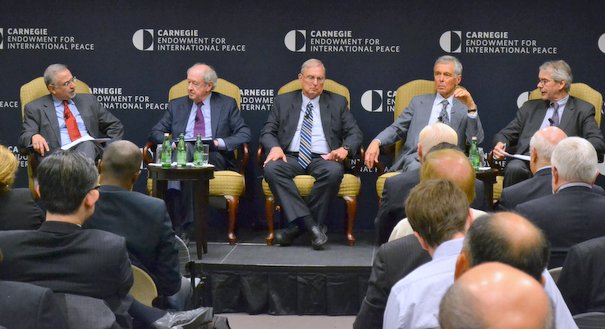Registration
You will receive an email confirming your registration.
On May 9, Filipinos will vote for a new president and vice president in arguably one of the country’s most consequential elections. While outgoing President Aquino has overseen a dramatic turnaround in his country’s economic fortunes, the Philippines still faces a range of important challenges, including an unfinished economic reform agenda, an internal security threat from Islamic militants, and potential confrontation with China over disputed islands in the South China Sea. A panel of Southeast Asia experts discussed how Aquino’s potential successor would handle these challenges and what’s at stake for U.S.-Philippines relations. Carnegie’s Vikram Nehru moderated.
This event was co-sponsored by the U.S.-Philippines Society and the Southeast Asian Studies Program of the Johns Hopkins University’s School of Advanced International Studies.
William Wise
William Wise is practitioner-in-residence and senior associate director of Asian and Southeast Asian Studies at the Johns Hopkins University School of Advanced International Studies.
Murray Hiebert
Murray Hiebert serves as senior fellow and deputy director of the Southeast Asia program at the Center for Strategic and International Studies in Washington.
Michael Eiland
Michael Eiland is an independent foreign affairs consultant with several years experience in senior positions in the U.S. army and the U.S. intelligence community focused mainly on East Asia.
Marvin C. Ott
Marvin C. Ott is professorial lecturer and visiting scholar in Southeast Asia studies at the Paul H. Nitze School of Advanced International Studies, lecturer in East Asian Studies at the Johns Hopkins University, and public policy scholar at the Woodrow Wilson International Center for Scholars.
Vikram Nehru
Vikram Nehru is a senior associate in Carnegie’s Asia Program where he focuses his research on the economic, political, and strategic issues confronting Asia, particularly Southeast Asia. Follow him on Twitter @VikramNehru.
